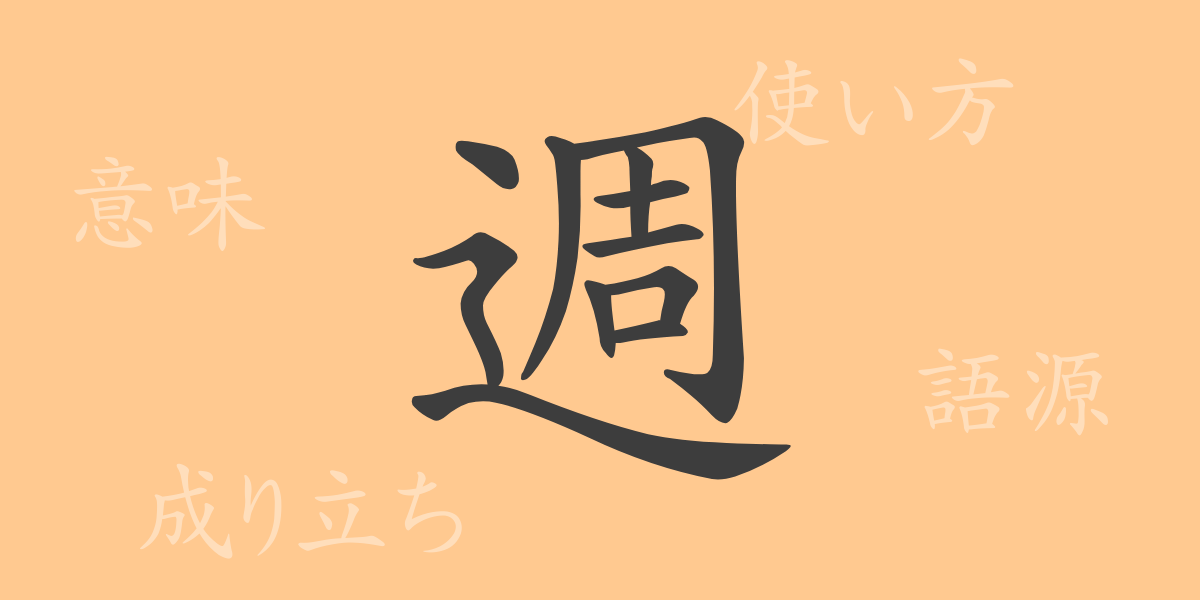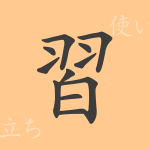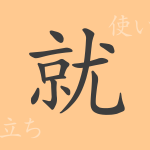The kanji “週(しゅう, shuu)” is indispensable as a unit for marking the passage of time. Deeply rooted in our daily lives, it is essential for planning and scheduling. But what history and meanings lie behind this familiar word? In this article, we will delve into the origins, meanings, uses, readings, and idiomatic expressions involving the kanji “週(しゅう, shuu)”.
Origin of 週(しゅう, shuu) (Etymology)
The origin of the kanji “週(しゅう, shuu)” dates back to ancient China. Initially, there was the character “周(しゅう, shuu)”, which means “around” or “to circle.” Over time, “周(しゅう, shuu)” began to be used as “週(しゅう, shuu)”, representing a unit of time and signifying a week. This shift occurred as people required a periodic time division in their daily lives, marking the cyclical passage of days.
Meaning and Usage of 週(しゅう, shuu)
The kanji “週(しゅう, shuu)” refers to a time period of seven days. In Japan, a week runs from Sunday to Saturday. It is used to indicate the flow of time, as in “今週(こんしゅう, konshuu)” (this week), “来週(らいしゅう, raishuu)” (next week), and “先週(せんしゅう, senshuu)” (last week). Additionally, “週末(しゅうまつ, shuumatsu)” refers to the weekend. In the business context, it is common to see “週報(しゅうほう, shuuhou)”, a weekly report summarizing the week’s activities.
Readings, Stroke Count, and Radical of 週(しゅう, shuu)
The kanji “週(しゅう, shuu)” offers various insights through its structure and readings.
- Reading: The on’yomi (音読み) reading is “シュウ(しゅう, shuu)”, and there is no specific kun’yomi (訓読み) reading.
- Stroke count: The kanji “週(しゅう, shuu)” has 11 strokes.
- Radical: The radical is 辵(しんにょう, shinnyou), which denotes walking or moving.
Idioms, Phrases, and Proverbs Using 週(しゅう, shuu)
There are numerous idioms, phrases, and proverbs in Japanese that incorporate the kanji “週(しゅう, shuu)”. For instance, “週刊(しゅうかん, shuukan)” refers to a weekly publication, “週末(しゅうまつ, shuumatsu)” indicates the weekend, and “週三日(しゅうみっか, shuumikka)” means three times a week. These expressions are so ingrained in daily life that we often use them without considering their deeper meanings.
Conclusion on 週(しゅう, shuu)
The kanji “週(しゅう, shuu)” represents an essential concept deeply embedded in our daily lives. Understanding its origin, modern usage, and associated idioms and phrases can enrich our appreciation of language. As we plan our schedules and measure time, recognizing the significance of “週(しゅう, shuu)” can help us use our time more effectively.

























